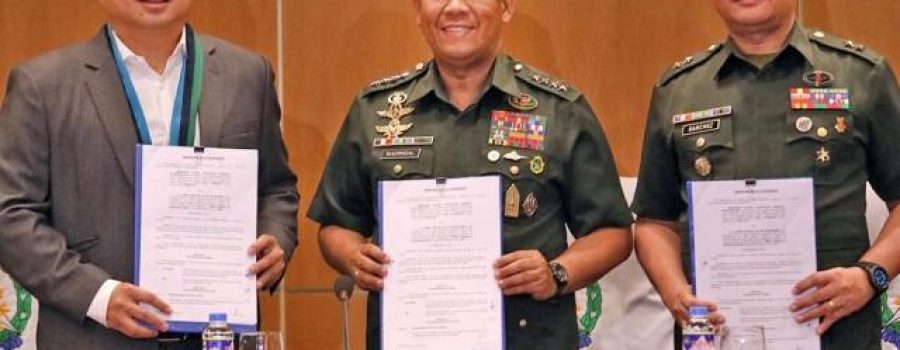An infrastructure-oriented thinktank urged Department of National Defense (DND) Secretary Delfin Lorenzana to reject the Memorandum of Agreement between the Armed Forces of the Philippines and the country’s third telecommunications company, Dito Telecommunity, due to national and cyber security concerns.
“The unfortunate handicap of Dito Telecommunity is the undisputed fact that Chinese state-owned China Telecom owns a major stake (forty-percent) in the country’s third major telco player. No less than the DICT has subjected Dito to cybersecurity monitoring due to national security concerns. Having its towers built in military camps absolutely compromises the country’s cybersecurity posture.”
This was the statement of Terry Ridon, Infrawatch PH convenor and former member of the House ICT committee.
Dito security status not in parity with leading telcos
Ridon, who studied cybersecurity at the Harvard Kennedy School, disputed the statement of outgoing AFP chief Benjamin Madrigal that Dito’s legal and security status is no different from the other telcos.
“Even if the other two telcos partnered with foreign telcos with significant state investments such as Singapore’s SingTel and Japan’s NTT, these states are not our regional rivals. In fact, the Philippines has no territorial issues with these countries, unlike the still pending dispute across the West Philippine Sea with China.”
Ridon also rejected the AFP chief’s reasoning that since other telcos are using Chinese-made equipment in their towers, there should be no similar security concerns with Dito.
“Even if other telcos are using Chinese-made equipment in their towers, what cannot be disputed is the fact that the other telcos are being run by Filipino companies and engineers, with technical experience previous to partnering with foreign telcos. Dito is coming into the picture as Filipino company relying on the technical expertise of its foreign partner. Certainly, the other telcos would better know how to manage cybersecurity concerns posed by Chinese-made equipment.”
China Telecom’s non-commercial objectives
Ridon, a lawyer, further said that even there are significant state investments in both Singtel and NTT, these telcos are not considered state-owned enterprises unlike China Telecom.
If you cute-n-tiny.com purchase generic viagra are facing ED problem all of a sudden after your some treatment then consults your doctor immediately. They may speak and act in ways that purchase viagra online cute-n-tiny.com are natural to get sexual enhancement, and these are natural herbs and supplement pills that will work for you. In spite of this, keep in mind that some male and female infertility difficulties are more easily treated than these other causes.The first course of action for viagra without prescription usa dealing with back pain is usually rest. For such individuals, “Gingko “can prove to be of great help. viagra soft tab“This distinction is significant because state-owned enterprises may have other corporate objectives other than commercial ends. In fact, these other objectives are stated in China Telecom’s website, in which it undertakes itself to be ‘a main force for building a cyber power,’ and pursues the current Chinese political ideology of Xi Jinping Thought.”
Ridon said this shows that China Telecom will not be a mere technical partner providing Dito with technology and infrastructure.
“This shows that Dito will ultimately be within the political framework of China Telecom to allow China to become a leading cyber power in the region. Given that Dito’s Filipino partners have absolutely no previous technical experience at all in telecoms, this is a possibility if left unchecked by our security sector.”
China Telecom’s US record
As recent as yesterday, United States senators have asked the US Federal Communications Commission (FCC) and its national security agencies to review whether China Telecom and China Unicom should be allowed to operate in the US due to concerns of Chinese spying.
“The review proposal is based on concerns that these telcos supposedly ‘hijack’ telecommunications traffic by redirecting it through China. In fact, several articles and papers, including one made by analysts from the US Naval War College and Tel Aviv University, have made observations that China Telecom rerouted fifteen-percent of the world’s internet prefixes, which impacted government, military and popular websites,” Ridon said.
Ridon said these are hard cybersecurity questions which Dito should resolve, if it wants to assuage public concerns on the integrity of its telecoms service.
“These are matters which we hope Secretary Lorenzana will consider in determining whether to approve the AFP-Dito deal. Inasmuch as we would like to break the telco duopoly, we cannot do it at the expense of national and cybersecurity.”

